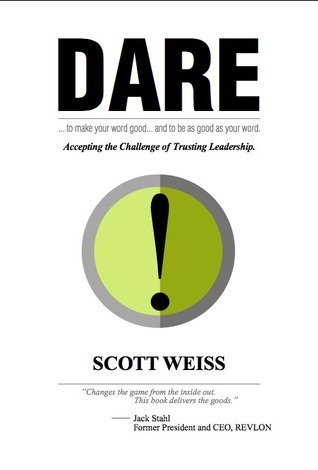
Dare: Accepting the Challenge of Trusting Leadership
Book Description
Trust can feel like a mountain too steep to climb, yet in "Dare: Accepting the Challenge of Trusting Leadership," Scott Weiss unveils the transformative power of vulnerability in leadership. With gripping insights and real-world examples, this book challenges the status quo and ignites a fire for change. It pushes leaders to embrace uncertainty, fostering authentic connections that inspire teams and drive innovation. As the stakes rise and the barriers of distrust threaten to crumble under pressure, can leaders summon the courage to foster trust in an increasingly fractured world? Dive into this compelling journey and discover what it truly means to lead with confidence.
Quick Book Summary
"Dare: Accepting the Challenge of Trusting Leadership" by Scott Weiss explores the essential role of trust and vulnerability in effective leadership. Weiss argues that while trust is often viewed as a difficult attribute to foster, especially in high-stakes environments, it is this very quality that catalyzes meaningful change and drives innovation. Through a blend of insightful analysis and real-life examples, Weiss debunks the myth of infallible leadership and urges leaders to embrace uncertainty and human fallibility. This book encourages leaders to break down barriers, foster authentic relationships, and inspire teams by cultivating an environment where trust flourishes. By daring to lead with vulnerability, Weiss shows, leaders can unleash both personal and organizational potential, making trust the foundation of twenty-first-century leadership.
Summary of Key Ideas
Table of Contents
The Transformative Power of Vulnerability
Scott Weiss begins by challenging the conventional image of the unshakable, omniscient leader. Instead, he posits that vulnerability is the crucial ingredient for trust and authentic connection. Drawing from personal anecdotes and leadership case studies, Weiss illustrates how leaders who show openness and admit their uncertainties create fertile ground for trust to take root. Vulnerability, he contends, is not a weakness, but the pathway to fostering resilient, creative, and high-performing teams.
Cultivating Authentic Relationships
The book delves into the mechanics of building authentic relationships within the workplace. Weiss underscores the importance of leaders being genuine, transparent, and approachable, engaging in honest communication. By sharing both accomplishments and setbacks, leaders signal their trust in others and invite reciprocal openness. This atmosphere leads to deeper connections, stronger loyalty, and a willingness among team members to collaborate and innovate, knowing their contributions are truly valued.
Embracing Uncertainty for Growth
Embracing uncertainty is another key theme that Weiss addresses. He reframes uncertainty from something to be feared or controlled to an inherent aspect of leadership that, when welcomed, unlocks new perspectives and opportunities. Leaders who accept ambiguity foster a growth mindset in their organizations, empowering teams to take calculated risks, learn from failure, and adapt swiftly to change—a necessity in an increasingly complex business landscape.
Overcoming Barriers to Trust
However, Weiss acknowledges the formidable barriers to trust that can exist: entrenched organizational norms, past breaches of trust, and personal insecurities. Through practical strategies and reflective questions, he guides leaders in identifying and dismantling these obstacles. Weiss advocates for intentional actions—such as active listening, visible accountability, and consistent ethical behavior—demonstrating how small, repeated gestures can rebuild and strengthen trust over time.
The Ripple Effect of Trust in Organizations
Finally, Weiss describes the ripple effect of trust within organizations. When leaders model trusting behavior, it cascades throughout the culture, inspiring teams to communicate more openly, innovate more boldly, and weather adversity more effectively. Trust becomes a dynamic force multiplier, aligning individual purpose with organizational vision, and propelling everyone toward shared goals. In an age where distrust can easily fracture teams and stifle progress, Weiss paints a convincing portrait of why daring to trust remains the ultimate leadership challenge and reward.
Download This Summary
Get a free PDF of this summary instantly — no email required.





